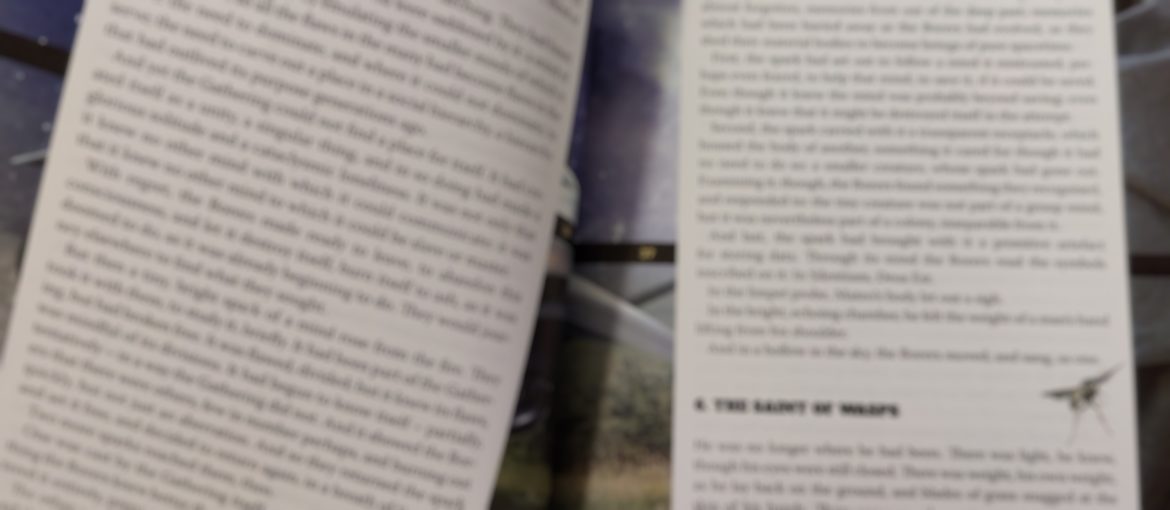Last year I was posting reading notes on Interzone short stories as I caught up on a backlog of magazines that built up during my relocation.
This was part of a personal aspiration to read a short story and an essay every day. Achieving something so simple is sometimes harder than it sounds.
Sharing those notes here fell by the wayside due to holidays and work, but COVID-19 is inadvertently providing a little time to redress this…
The Realitarians, James Warner. Apparently part of a series of tales about “feline sleuths”, this one features a woman with a tendency to get mixed up with bad sorts luring a physicist into a kidnapping, following which things rapidly unravel. She’s not a good person, and nor are any of the humans around her. Are the cats? Well, one of them at least might be a “realitarian”. An off-kilter story with an easy humour that left me wanting to read more about these feline sleuths.
Float, Kai Hudson. A very short story about a girl who thinks of herself as a “dirtworm”: a ‘natural’ human living in a zero-gravity space habitat without any modification or adaptation for that environment. She travels to Earth and we see it through her eyes. This is as much a character sketch as it is a story, primarily told through internal monologue and memory, from the point of view of someone who feels unavoidably out of place. It’s simple and it works.
Harmony, Andy Dudak. This is a dark one. A spy or agent strangles an official in a military-occupied city and then attempts to escape. The city is dominated by a song which never stops playing and captivates its listeners, making puppets of them. The song’s disorienting, subversive effects on the point of view character is very nicely handled.
A Dreamer Arrives in the Occupied City, Malcolm Devlin. Surprisingly close to the conceit of the story that directly precedes it. Another city, this time occupied by mysterious, never-identified creatures called “lopers” which – somehow – mean people do not dream. But a woman who returns to a club and the friends she once sought to escape with her new love finds, performing there, a singer who does dream. The story is more concerned with suggestion and implication than anything pointed. In this sense it is both a little like dreams, and is delicately written in that it deftly leaves a lot up to the reader. Despite admiring some elements I found the lack of resolution dissatisfying and the closing character moment unearned. (I did read this story in two halves, on opposite sides of a weekend, so perhaps I missed something important!)
Scolex, Matt Thompson. An addict and former gene-drug producer is tempted by one huge payday to act as a mule for a mysterious new high called Scolex. His employer turns out to be a figure from his past, and his trip – both physical and pharmacological – will take him back home – literally and figuratively. The story’s conclusion is fitting, and the setting left me intrigued.
Cafe Corona, Georgina Bruce. Very short piece that seems to be derived from the biggest moment in astronomy in 2019: the photographing of a black hole, complete with corona. A strange flash story that superimposes that image everywhere, and imagines that said image can be… pushed through? (I didn’t really get this story. Maybe I should re-read it when I’m less dog tired.)
Our Fathers Find Their Graves in Our Short Memories, Rebecca Campbell. Damn, this is maudlin. An epitaph to deceased humanity, crumbling away as capitalocene climate change eats away at the foundations for civilization and, ultimately, life. As humanity declines it retreats into memory. The counter ticks down. The lights go out. The story should be bleak but in its nostalgia and in its personal storytelling it feels more like a farewell, a tidy shutting-down, than the trailing off of hope and human life.

